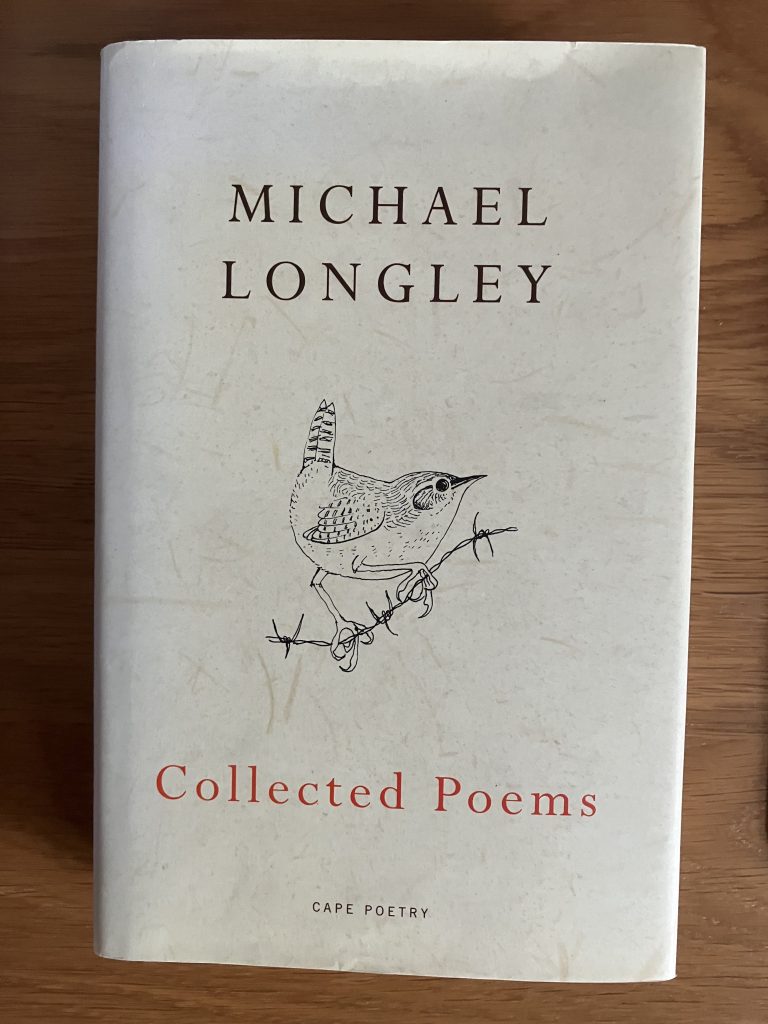I’ve moved through time and space in the work of Michael Longley, from the mythical battles of Ancient Greece, through the Northern Ireland Troubles, to “the caress of the sea air” in Carrigskeewaun, in County Mayo. I know that with his death last week we lost a brilliant poet. I also know that we lost a kind and generous man.

I went to see him at his home in 2006 while writing a travel article about literary Belfast, and he welcomed me warmly with a cup of tea and a sandwich. I’d brought with me a copy of his newly published Collected Poems, which I had requested from Jonathan Cape while researching my piece. When I took it out of my bag, he told me he hadn’t yet received a copy himself. I said he must take the one I had; he insisted I keep it, and wrote a dedication.

I’d taken a bus tour of the city in advance of the Belfast Festival at Queen’s University, a tour designed to show that, in the words of one of our guides, Hugh Odling-Smee, “a city better known for shipbuilding and strife has a rich and palpable literary heritage”. We had seen the Customs House, where Trollope had once had an office; the site of the villas where CS Lewis had been born; the school that Brian Moore attended and then satirised in The Feast of Lupercal, escaping a libel suit only because the headmaster had the sense to acknowledge that “the boy is merely biting the hand that birched him”.
We had touched on writers who had been born in Belfast and those who had felt themselves dying there; on novelists who had celebrated its geography (the resemblance of Cave Hill, above the city, to the face of a reclining man is said to have inspired Jonathan Swift to create the giant Gulliver) and on playwrights who had despaired of its politics.
We had glimpsed a pub where Seamus Heaney and his fellow poets had gathered upstairs and loyalist paramilitaries downstairs. We had nodded at the famous and been alerted to the overlooked, and when we spilled off the bus at the end there were many of us for whom the first call would have been a bookshop. (Well, after the John Hewitt pub, of course, which is a must not only because it commemorates the founding father of Northern Irish poetry but because its profits help the poor and the unemployed.)
During my stay, the Belfast Telegraph reported that tourist numbers had increased fivefold since the first IRA ceasefire in 1994. EasyJet had told the paper that over the last bank holiday Belfast had been the number one destination for passengers flying out of London and the second for those flying out of Scotland. The festival organisers were expecting to draw a good crowd.
A highlight of the programme was a gala evening to launch The Blackbird’s Nest, an anthology edited by Frank Ormsby of work from poets associated with Queen’s University, including Longley. One of his contributions was the sonnet “Ceasefire”. Written when peace was still only a rumour, it appeared in The Irish Times days after the IRA announced its 1994 truce, and caused a stir among politicians as well as poets.
The fact that the peace following the Good Friday Agreement (1998) was an uneasy one, Longley told me, showed “that all the tensions that produced the violence are still there. It will, I hope, become an easy peace, but I think that will take a generation.” Yet already, he joked, he and Frank Ormsby were having trouble finding a snug in the Crown Liquor Saloon, that “cathedral to St Guinness”, because of the competition from “rubbernecking tourists”.
There have been richly deserved tributes to Longley in The Irish Times, The Guardian and other papers. The New Statesman has republished a piece by Longley himself on poetry and the Troubles, an edited version of a lecture he gave in 2017 on winning the PEN Pinter Prize. BBC Radio 3 is to air again a series, Michael Longley’s Life of Poetry, which he made with Olivia O’Leary last year to mark his 85th birthday. I would also recommend a film from last year that is still available on BBC iPlayer: Michael Longley — Where Poems Come From.


Leave a Reply